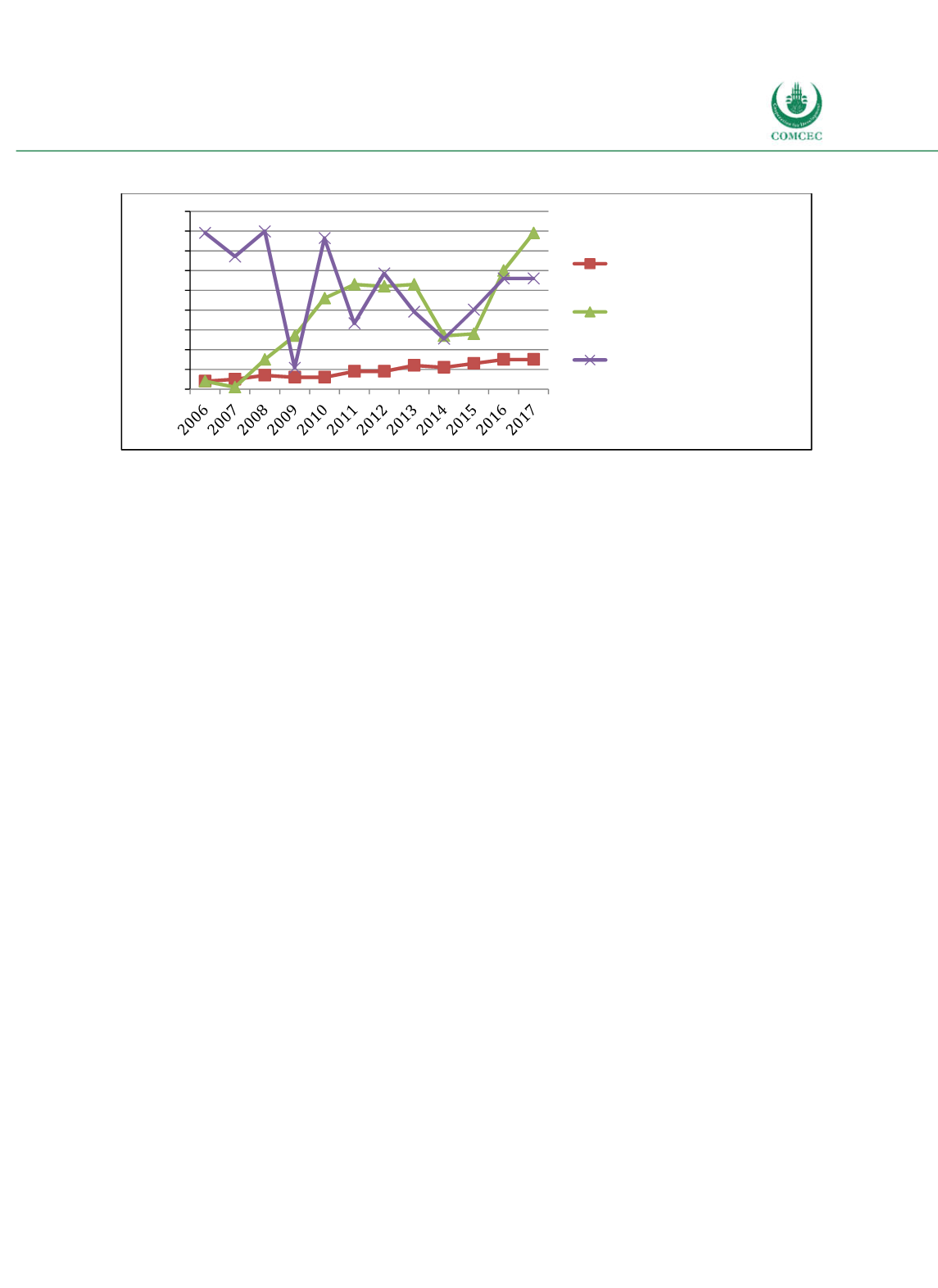

Improving Public Debt Management
In the OIC Member Countries
83
Figure 4-6: Mozambique - Interest Rates and Inflation
Sources: IMF (2009, 2011, 2013, 2015b), calculations by the Ifo Institute.
C) Policy Recommendations
Mozambique has made progress in improving public debt management frameworks in the last
years. The Public Debt Management Unit at the Ministry of Finance is the main institution
responsible for public debt management. The government has developed a mediumterm debt
management strategy that is published online. The targets of the debt management strategy
remain, however, vague. There are no numerical targets regarding the risks the government’s
debt portfolio is facing.
Mozambique is exposed to high exchange rate risks because of the large share of external debt.
Whereas authorities in Mozambique described the country’s external debt as sustainable and
the risk of debt vulnerability with respect to external shocks as moderate at the end of 2015
(IMF 2015b), the adverse effect of the U.S. Dollar appreciation on the debttoGDP ratio poses a
higher risk in the light of the revelation of previously undisclosed loans. Developing a domestic
debt market and increasing domestic borrowing could reduce the exchange rate risk.
Regarding domestic debt, the Mozambique is exposed to refinancing risk because the short
average time to maturity and high share of debt maturing within one year, and interest rate
risk because the average time to refixing is high and the share of debt to be refixed within one
year is high.
Improving public disclosure and accountability is important, in particular following the
revelation of undisclosed loans in 2016. Whereas the local authorities already pushed forward
an investigation about the undisclosed debt through the Attorney General and a Parliamentary
Inquiry Commission, an international independent audit of the affected companies could help
restoring confidence. In the light of the recent revelations, it is even more important to tighten
fiscal and monetary policies substantially and to ensure exchange rate flexibility, which is
needed to restore macroeconomic sustainability and reduce inflationary pressures (IMF
2016c).
It is recommended to modernize the Revenue Authority in order to broaden the tax base and
increase tax revenues, which would give rise to a reduction of the public deficit (IMF 2015b).
Apart from that, Mozambique could create a fiscal risk unit responsible for evaluating all kinds
of risks with respect to potential changes in key underlying macroeconomic assumptions and
related to public and publicly guaranteed debt, PPPs and SOEs (IMF 2015b).
0 1 2 3 4 5 6 7 8 9
%
Average Nominal Interest
Rate on forex debt (%)
Average Real Interest Rate
on Domestic Debt (%)
Inflation (GDP deflator,
annually, %)
















